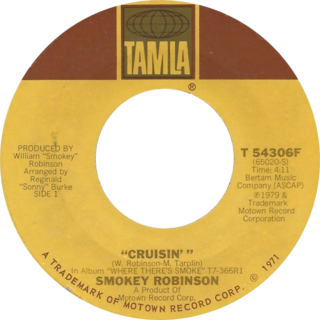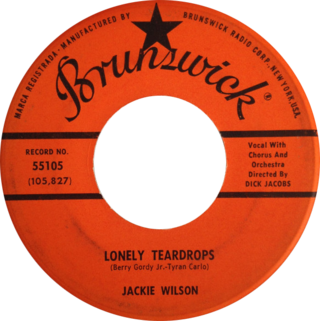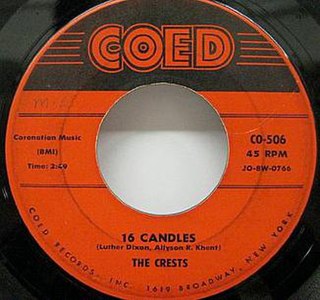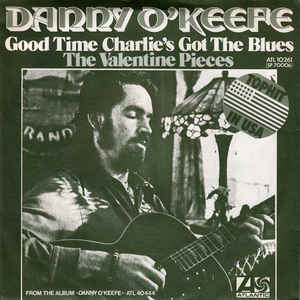Related Research Articles

Lloyd Price was an American R&B and rock 'n' roll singer, known as "Mr. Personality", after his 1959 million-selling hit, "Personality". His first recording, "Lawdy Miss Clawdy", was a hit for Specialty Records in 1952. He continued to release records, but none were as popular until several years later, when he refined the New Orleans beat and achieved a series of national hits. He was inducted into the Rock and Roll Hall of Fame in 1998.

Lloyd Polite Jr. is an American R&B singer. Born in New Orleans, Louisiana, and raised in Decatur, Georgia, he began his musical career as a member of the preteen-boy band N-Toon, which was formed by Joyce Irby in 1996. The group disbanded in 2001, and Polite signed with record executive Irv Gotti's Murder Inc. Records, an imprint of Def Jam Recordings in 2003 to pursue a solo career. His 2004 debut single, "Southside" peaked within the top 40 of the Billboard Hot 100 and led his first album Southside (2004), which entered the Billboard 200 at number 11. His second album, Street Love (2007) debuted at number two on the chart and was supported by the Billboard Hot 100-top 20 singles "You" and "Get It Shawty".

"Chantilly Lace" is a 1958 rock and roll song by The Big Bopper. It was produced by Jerry Kennedy, and reached No. 6 on the US Billboard Hot 100. Bruce Channel covered the song on his 1962 album, Hey! Baby. The song was also covered by Jerry Lee Lewis in 1972.
"Don't Let the Stars Get in Your Eyes" is a country song about a man away from home who is worried that his paramour may unwittingly stray from their relationship. It was written by Winston L. Moore and published in 1952. The song has been recorded in many different styles by many performers, with Perry Como's version hitting number 1 in both the US and UK.

"Ramblin' Rose" is a 1962 popular torch song written by brothers Noel Sherman (words) and Joe Sherman (music) and popularized by Nat King Cole. The recording by Nat King Cole reached No. 2 on the Billboard Hot 100 chart in 1962.
"Heartaches by the Number" is a popular country song written by Harlan Howard, and published in 1959. The sheet music was a best seller in both the US and Britain in January 1960.
"Dream Lover" is a song written by American musician Bobby Darin. Darin recorded his composition on March 5, 1959 and released it as a single the following month. It was produced by Ahmet Ertegun and Jerry Wexler and engineered by Tom Dowd.
"Why" is a hit song recorded by Frankie Avalon in 1959. It reached No. 1 on the U.S. Billboard Hot 100 chart published on the week of December 28, 1959. It was Avalon's second and final No. 1 hit.

"Cruisin'" is a 1979 single written, produced, and performed by the American singer-songwriter Smokey Robinson for Motown Records' Tamla label. One of Robinson's most successful singles outside of his work with the Miracles, "Cruisin'" hit number one on the U.S. Cash Box Top 100 and was also a Billboard Hot 100 hit, peaking at number four the week of February 2, 1980. It was a top-five hit on the Soul chart as well.
"Someday You'll Want Me to Want You" is a popular song published in 1944 by Jimmie Hodges. The song became a standard, recorded by many pop and country music singers.
"Stagger Lee", also known as "Stagolee" and other variants, is a popular American folk song about the murder of Billy Lyons by "Stag" Lee Shelton, in St. Louis, Missouri, at Christmas 1895. The song was first published in 1911 and first recorded in 1923, by Fred Waring's Pennsylvanians, titled "Stack O' Lee Blues". A version by Lloyd Price reached number one on the Billboard Hot 100 in 1959.
"Release Me" is a popular song written by Eddie Miller and Robert Yount in 1949. Four years later it was recorded by Jimmy Heap & the Melody Masters, and with even better success by Patti Page (1954), Ray Price (1954), and Kitty Wells (1954). Jivin' Gene [Bourgeois] & the Jokers recorded the tune in 1960, and that version served as an inspiration for Little Esther Phillips, who reached number one on the R&B chart and number eight on the pop chart with her big-selling cover. The Everly Brothers followed in 1963, along with Lucille Starr including a translation in French (1964), Jerry Wallace (1966), Dean Martin (1967), and Engelbert Humperdinck (1967), whose version reached number one on the UK Singles Chart.
"City Lights" is an American country music song written by Bill Anderson on August 27, 1957. He recorded it on a small Texas label called TNT Records in early 1958 to little acclaim. The song was first cut by Anderson in 1957 at the campus of the University of Georgia. In June 1958, Ray Price recorded it and his version hit number 1 on the Billboard Hot Country Songs singles chart in August 1958. Mickey Gilley's version also hit number 1 in June 1975.

"Lonely Teardrops" is a song written by Berry Gordy Jr., Gwen Gordy and Roquel "Billy" Davis, first recorded and released as a single in 1958 by R&B singer Jackie Wilson, on the Brunswick label. The single was commercially successful, reaching the top ten on the Billboard Hot 100, and number-one on the R&B chart. It is ranked as the 57th biggest U.S. hit of 1959.

"16 Candles" is a 1958 song performed by the Crests and written by Luther Dixon and Allyson R. Khent.
"Drinking Champagne" is a song written by Bill Mack. He released the first version of the song on Pike Records in the mid-sixties. The song grabbed nationwide attention when the version by Cal Smith reached #35 on the country music charts in 1968.

Brenda Lee is the second studio album by American singer Brenda Lee. The album was released August 1, 1960 on Decca Records and was produced by Owen Bradley. The album's second single "Sweet Nothin's" became Lee's first major hit single on the Billboard Hot 100, peaking within the Top 10. This was followed by the third single "I'm Sorry" released the following year that became her first single to top the Billboard Hot 100.

"Good Time Charlie's Got the Blues" is a song written and performed by American folk singer Danny O'Keefe.
References
- ↑ Burke, Ken (1998). "Lloyd Price". In Graff, Gary; Durchholz, Daniel (eds.). MusicHound Rock: The Essential Album Guide. Detroit: Visible Ink Press. pp. 895–896.
- ↑ Gilliland, John (1969). "Show 17 - The Soul Reformation: More on the evolution of rhythm and blues. [Part 3]" (audio). Pop Chronicles . University of North Texas Libraries.
- ↑ "The Hot 100 Chart". Billboard.com.
- ↑ Whitburn, Joel (2004). Top R&B/Hip-Hop Singles: 1942-2004. Record Research. p. 470.
- ↑ "Personality" by Lloyd Price, Musicvf.com, Retrieved March 18, 2012.
- ↑ "ANTHONY NEWLEY | full Official Chart History | Official Charts Company". Officialcharts.com.
- ↑ "Jackie Robinson (2) / The All Stars (37) – Personality / Stone Cold". Discogs. 1974. Retrieved July 7, 2022.
- ↑ Jerry Lee Lewis, Jerry Lee Lewis, AllMusic, Retrieved March 18, 2012.
- ↑ "The Help (Music From the Motion Picture)". Amazon.com. July 26, 2011. Retrieved January 30, 2012.